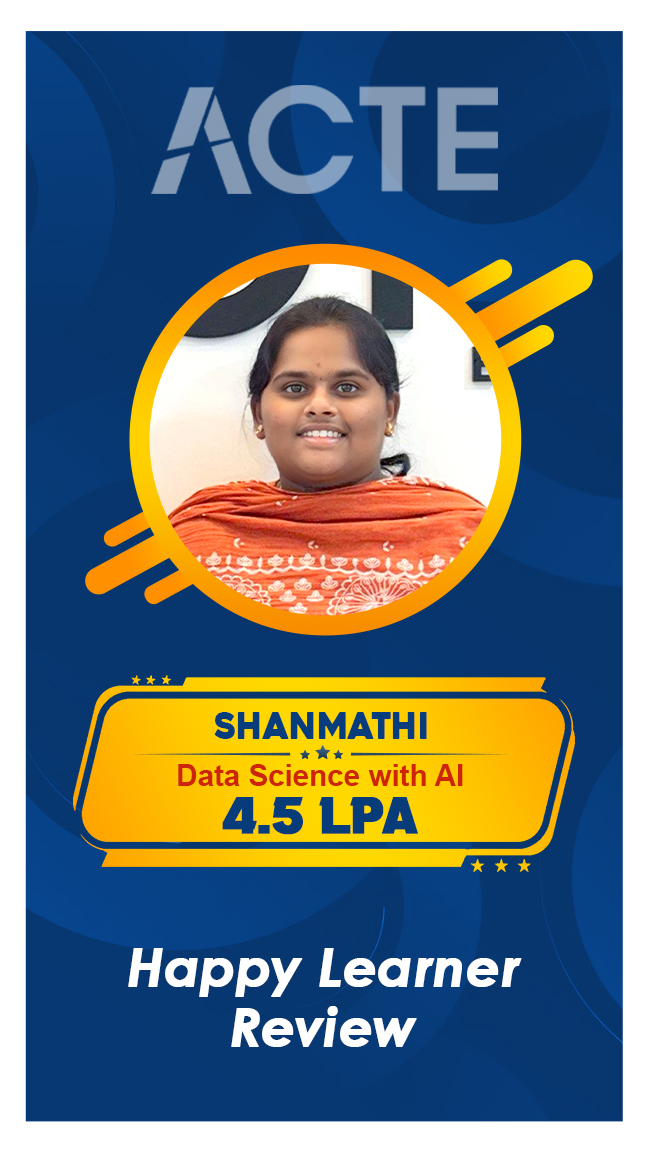An Complete Overview of Docker Course
The Docker Online Training is designed to provide a comprehensive understanding of containerization focusing on Docker, Docker Swarm and Kubernetes This course enhances skills in application deployment scalability and automatio enabling professionals to streamline workflows efficiently. Through Docker Online Course learners gain hands-on experience with container orchestration, networking and security using industry best practices. Real-world case studies, practical labs, and expert guidance ensure a deep understanding of Docker container management The course offers flexible learning formats including self-paced and instructor-led sessions, catering to different learning preferences. Enrolling in a Docker Course not only strengthens your DevOps expertise but also boosts your career prospects making you a valuable asset in cloud-native environments.
Additional Info
Future Innovations in Docker Course
- Rise of Kubernetes & Docker Integration:
Docker is increasingly integrated with Kubernetes the leading container orchestration platform Organization are adopting Kubernete for large-scale application management making Docker critical skill DevOps professionals. Understanding how Docker Course with Kubernetes enhances container automation, scalability and security Future courses will emphasize multi-cluster management networking and service mesh integration Docker Certification Course Mastering Docker and Kubernetes together will open doors to advanced cloud-native development roles.
- Serverless Computing & Docker:
Serverless computing gaining popularity, reducing infrastructure management overhead. Docker is being used to package and deploy serverless applications efficiently The future of Docker training will focus on integrating Docker with serverless platforms like AWS Lambda, Google Cloud Run, and OpenFaaS Learning how to containerize and manage serverless applications will be a valuable skill Docker’s role in optimizing serverless workloads will continue to expand in cloud environments.
- Security Enhancements:
With the growing adoption of containers, security remains a top priority for enterprise Future Docker courses will emphasize container security best practices including vulnerability scanning, image signing and runtime protection. Tools like Docker Content Trust Aqua Security and Falco will become essential components of training program Understanding secure container development and deployment will be crucial for DevOps and cybersecurity professionals Organizations will require skilled individuals to implement compliance standards in containerized application.
- Multi-Cloud Deployment Strategies:
Enterprises are shifting towards multi-cloud strategies to avoid vendor lock-in and ensure high availability. Docker simplifies deploying applications across multiple cloud providers like AWS, Azure and Google Cloud. Future training will include best practices for container portability, cloud networking, and cross-cloud orchestration Understanding how to manage Docker in hybrid and multi-cloud environments will be a key focus Professionals with expertise in cloud-agnostic Docker deployment will have a competitive edge.
- Edge Computing & Docker Containers:
Edge computing is transforming how applications are deployed closer to data sources for reduced latency. Docker plays a crucial role in running lightweight containerized applications on edge devices. Future courses will explore Docker’s integration with edge computing frameworks such as AWS Greengrass and Azure IoT Edge Understanding how to optimize containers for low-resource environments will be an important skill. Docker-based edge computing solutions will be widely adopted in industries like IoT, healthcare and autonomous systems.
- Automation and Infrastructure as Code :
Automation is key to efficient DevOps workflows and Docker is central to Infrastructure as Code (IaC) strategies. Future training will focus on using Docker with Terraform, Ansible and Helm for automated deployments. Understanding how to define containerized infrastructure through code will streamline application management Docker Swarm and Kubernetes operators will play a crucial role in self-healing infrastructure automation. Mastering automation techniques will improve efficiency in cloud-native development.
- AI and Machine Learning Workloads :
Docker is becoming a preferred solution for deploying AI and machine learning models. Future training will highlight Docker’s role in containerizing TensorFlow, PyTorch and MLflow applications. Data scientists and engineers will learn how to package and scale machine learning workloads using Docker. GPU support and container orchestration will be key topics in advanced courses.
- Microservices Architecture :
Microservices have revolutionized application development by enabling modular and scalable design. Docker simplifies microservices deployment by encapsulating services into lightweight containers. Future Docker courses will emphasize best practices for microservices communication, API gateways, and service discovery Advanced topics like Istio service mesh and distributed tracing with Jaeger will gain importance Mastering Docker for microservices will be essential for modern software development.
- DevSecOps and Compliance :
Security and compliance are becoming integral to DevOps, leading to the rise of DevSecOps practice. Future Docker training will focus on integrating security tools like Trivy, Clair, and Snyk for vulnerability management. Understanding compliance standards such as CIS benchmark and PCI-DSS in containerized environments will be crucial Docker security automation using CI/CD pipelines will be a key area of learning Professional skilled in securing containerized applications will be in high demand.
- Web3 and Blockchain Development :
Blockchain and Web3 technologies are leveraging Docker for decentralized application (dApp) deployment. Future courses will explore how Docker enables blockchain nodes, smart contract testing and NFT marketplaces. Docker’s role in ensuring network consistency and reproducibility for blockchain projects will be highlighted. Understanding how to containerize Ethereum Hyperledger and IPFS nodes will be an emerging skill. As Web3 adoption grows, Docker expertise will be crucial for blockchain developers.
Building Tools and Techniques with Docker Course
- Docker Compose:
Docker Compose simplifies multi-container application management by using YAML configuration file. It allows developers to define and run complex applications with multiple services effortlessly. With Compose, users can automate container networking, volumes and dependencies in a structured manner. It is widely used in development and testing environments to create reproducible containerized setup.
- Docker Swarm:
Docker Swarm provide native container orchestration enabling the management of multiple Docker nodes as a single system. It allows easy scaling of services, automatic load balancing, and high availability configurations Swarm ensures seamless container deployment with declarative service definitions and rolling updates It is a lightweight alternative to Kubernetes for managing containerized applications. Learning Docker Swarm will help professionals build resilient and scalable infrastructures.
- Kubernetes:
Kubernetes is most popular container orchestration tool ensuring efficient deployment and management of containerized application. It automates workload distribution, fault tolerance and resource optimization across clusters Future courses will highlight Kubernetes features like Helm charts service integration and automated scaling Understanding Kubernetes enhances container orchestration skills beyond Docker built in tool. Mastering it will open opportunities in cloud-native and enterprise-level deployments.
- Portainer:
Portainer user friendly web-based interface for managing Docker environment. It simplifies container management by offering visual controls for container creation, networking and monitoring. With Portainer, users can manage multiple Docker hosts and orchestrators like Swarm and Kubernetes.
- Docker Machine:
Docker Machine automates the provisioning and configuration of Docker hosts on various cloud providers and local environment It allow users to create and manage virtual machine pre-configured with Docker Engine. With built-in drivers for AWS, Azure and Google Cloud Docker Machine simplifies multi-cloud container deployment It is ideal for setting up development and testing environments quickly Mastering Docker Machine help professionals streamline cloud-native container infrastructure.
- Docker Hub:
Docker Hub is cloud-based repository for storing sharing and managing Docker container images It provides access to thousands of pre-built images, reducing setup time for developer. Users can automate image builds manage versioning and control access with private repositorie Integration CI/CD pipeline enable seamless application deployment Understanding Docker Hub is essential for efficient container lifecycle management.
- Harbor:
Harbor is open-source container registry that enhances Docker image security and management It offers vulnerability scanning access control and replication features for enterprise-grade container storage. Harbor supports image signing ensuring that only trusted images are deployed in production It integrates with Kubernetes and other orchestration platforms for seamless container distribution Learning Harbor ensures better security and compliance in containerized environments.
- BuildKit:
BuildKit is an advanced build engine that enhances Docker image building with improved performance and caching mechanisms. It supports parallel processing reducing build time significantly BuildKit allows users to create more efficient and secure images with minimal dependencie. The tool also introduces enhanced logging and debugging features for troubleshooting builds Mastering BuildKit helps optimize Docker workflows for faster application delivery.
- Docker CLI (Command-Line Interface):
The Docker CLI is the primary tool for managing containers, images, networks and volume. It provides a powerful command-line interface for executing container operations efficiently. With CLI commands, users can create, start, stop and inspect containers seamlessly. Learning advanced CLI features like Docker logs, exec and prune enhances operational control. Docker courses will focus on scripting and automation techniques using the CLI for production workflows.
- Grafana and Prometheus :
Grafana and Prometheus widely used for real-time monitoring and performance analysis of Docker containers. Prometheus collects container metrics while Grafana visualizes them through customizable dashboards. These tools help detect performance bottleneck optimize resource usage and improve system reliability Integrating Docker with monitoring solutions ensures proactive issue resolution and operational stability Mastering these tool is essential for maintaining high-performance containerized environment.
Key Roles and Responsibilities in Docker Course
- Docker Administrator:
A Docker Administrator is responsible for managing containerized environments ensuring seamless deployment and operation. They configure, monitor and troubleshoot Docker containers, networks and storage solutions. Administrators optimize performance by managing container orchestration tools like Docker Swarm and Kubernete. An Security implementation including a vulnerability of scanning and compliance enforcement Mastering Docker administration helps professional maintain efficient and scalable infrastructure.
- DevOps Engineer:
A DevOps Engineer integrates Docker into CI/CD pipelines to automate software development and deployment workflow. Their responsibilities include managing container orchestration optimizing build processes, and maintaining cloud-native infrastructure Security hardening and performance tuning of Docker environments are essential aspects of their role Learning Docker enhances their expertise in continuous integration, delivery and deployment.
- Kubernetes Specialist:
A Kubernetes Specialist focuses on orchestrating Docker container at scale using Kubernete. They design deploy and manage containerized applications across multiple clusters. Their responsibilities include configuring networking, service discovery and persistent storage solutions. Kubernetes specialists also implement security policies resource management and auto-scaling for optimal application performance Expertise in Docker and Kubernetes enables them to handle complex cloud-native architectures.
- Docker Security Analyst:
A Docker Security Analyst ensures the security of containerized applications and infrastructure. They perform vulnerability assessments, implement image scanning and enforce container runtime security measures. Their role includes defining access controls monitoring threats and securing container registries. Compliance with security standards like CIS benchmark and industry best practices is a critical responsibility Mastering Docker security helps organization mitigate risks and maintain data integrity.
- Cloud Engineer:
A Cloud Engineer leverages Docker for deploying and managing containerized applications across cloud platforms like AWS, Azure and Google Cloud They configure cloud-native services, networking and storage solutions to optimize container performance. Their role involves integrating Docker with cloud orchestration tools such as Kubernetes, ECS and AKS.
- Site Reliability Engineer (SRE):
A Site Reliability Engineer (SRE) focuses on maintaining system uptime, performance and scalability in Dockerized environments. They implement monitoring solutions using tools like Prometheus and Grafana to track container health Their responsibilities include optimizing resource allocation, automating failover mechanisms and managing incident response strategies.
- CI/CD Pipeline Engineer:
A CI/CD Pipeline Engineer specializes in automating software build, test, and deployment workflows using Docker. They configure Jenkins, GitLab CI and other DevOps tools to streamline containerized application releases Integrating security checks and performance testing into pipelines is a crucial responsibility. Docker expertise enables them to accelerate software delivery cycles efficiently.
- Microservices Architect:
A Microservices Architect designs and develops scalable microservices-based application using Docker container They focus on decoupling monolithic application into modular services for improved flexibility and maintenance Their responsibilities include defining API communication managing service discovery and implementing load balancing techniques. Security, logging and monitoring strategies for microservices environments are key aspects of their role Mastering Docker helps them build efficient, resilient, and distributed architectures.
- Docker Trainer and Consultant:
A Docker Trainer educates individuals and organizations on containerization concepts, best practices and real-world implementations. They design and deliver hands-on training sessions covering Docker fundamentals, orchestration and security. Their role includes creating course materials, guiding practical labs, and mentoring learners in solving real-world container challenges. As a consultant they assist businesses in adopting Docker for infrastructure modernization and application deployment.
- Application Developer :
An Application Developer builds and deploys software applications within Docker containers for improved portability and scalability They design containerized development environments ensuring consistency across different systems. Their responsibilities include writing Dockerfiles, managing multi-stage builds and optimizing application performance Developers integrate Docker with frameworks databases and APIs to create efficient, scalable solutions Mastering Docker enhances their ability to deliver robust and reliable application.
Top Companies Actively Hiring Docker Professionals
- Amazon Web Services (AWS):
Amazon Web Services (AWS) is cloud computing and actively seeks Docker professionals to manage containerized workloads. AWS provides service like Amazon ECS and EKS which heavily rely on Docker for container orchestration. Engineers working with AWS focus on optimizing Docker-based applications for scalability and performance in cloud environment. The company emphasizes DevOps automation, requiring expertise in Docker CI/CD workflow Docker professionals at AWS contribute to innovative cloud solutions, enhancing application deployment and infrastructure efficiency.
- Google Cloud:
Google Cloud is at the forefront of containerization, offering services like Google Kubernetes Engine (GKE) that integrate seamlessly with Docker. The company hires Docker professionals to design, deploy and manage containerized application across hybrid and multi-cloud environment. Google Cloud engineers work on security, networking, and automation for Docker-based solutions. Expertise in Docker helps professionals streamline microservices, serverless computing, and container orchestration. Working with Google Cloud allows professionals to be part of cutting-edge cloud-native development.
- Microsoft (Azure):
Microsoft Azure actively hires Docker professionals to enhance its cloud services like Azure Kubernetes Service (AKS) and Azure Container Instances Docker experts at Microsoft develop and optimize containerized applications for enterprise clients using Azure DevOps tools. The company focuses on integrating Docker with hybrid cloud environments improving deployment strategies. Security and compliance in Dockerized workload are key areas where Microsoft invests heavily. Working at Microsoft offers opportunities to innovate in cloud-native computing and DevOps automation.
- IBM:
IBM is a pioneer in enterprise cloud computing and DevOps, making Docker expertise highly valuable within its ecosystem. The company leverages Docker in its Red Hat OpenShift platform for scalable and secure container orchestration Docker professionals at IBM focus on automating workflows, managing microservices, and optimizing hybrid cloud deployment IBM also prioritizes security and compliance in containerized environments making Docker security specialists highly sought after A career at IBM provide exposure to AI cloud-native applications and cutting-edge DevOps solutions.
- Red Hat:
Red Hat, a leader in open-source enterprise solution, actively hires Docker professionals to enhance its containerization technologies. The company’s OpenShift platform and heavily integrates Docker for container management Engineers at Red Hat focus on optimizing container security, networking and automation in enterprise IT environments. Docker experts work on open-source contributions, providing innovative solution for scalable application deployment Red Hat offers an exciting opportunity for professionals passionate about open-source and cloud-native development.
- Oracle:
Oracle uses Docker to modernize its cloud applications, database services, and enterprise solution. The company hires Docker professionals to enhance Oracle Cloud Infrastructure (OCI) with containerized applications. Engineers focus on deploying microservices-based solution improving database performance, and managing scalable workloads. Oracle’s emphasis on automation and security in Docker environments creates exciting opportunities for DevOps professionals. A career at Oracle allows professionals to work on next-generation enterprise cloud computing technologies.
- Cisco:
Cisco integrates Docker into its networking and cloud security solutions to optimize enterprise IT infrastructure The company actively hires Docker professionals to work on container networking, automation, and DevOps practices. Cisco engineers focus on building secure and scalable containerized applications that enhance networking performance Docker plays a crucial role in Cisco’s hybrid cloud strategies, requiring expertise in container orchestration and security Working at Cisco provides professionals with exposure to cutting-edge networking and cloud technologies.
- Dell Technologies:
Dell Technologies utilizes Docker to improve its cloud solutions, storage management, and virtualization services. The company seeks Docker professionals to work on automation, microservices, and scalable infrastructure solutions. Engineers at Dell focus on integrating Docker with VMware and other enterprise IT platforms. Security and performance optimization in containerized application are key responsibilities for Docker experts at Dell A career at Dell offers opportunities to work on innovative cloud and DevOps project.
- JPMorgan Chase:
JPMorgan Chase is one of the top financial institutions adopting Docker to modernize its banking application and infrastructure. The company hires Docker professionals to improve security, scalability and automation in financial services. Engineers work on containerized applications that enhance trading platforms, banking solutions, and customer services. JPMorgan Chase integrates Docker with cloud platforms and DevOps tools to streamline operation.
- Accenture:
Accenture is IT consulting and actively hires Docker professionals for its cloud and DevOps projects. The company uses Docker to modernize enterprise applications ensuring agility and efficiency in deployments. Engineers at Accenture work on containerization strategies, security and automation across multiple industries. Docker expertise is crucial for integrating cloud-native applications with various platforms and architectures.



















 Fees Starts From
Fees Starts From



















 Regular 1:1 Mentorship From Industry Experts
Regular 1:1 Mentorship From Industry Experts




